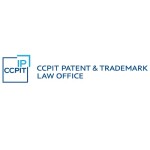It has been more than two years since the promulgation and implementation of China’s new Trademark Law in 2019. During this period, how have the changes in the new Trademark Law been implemented? What effect has been achieved? What regulations or interpretations have been issued by the China National Intellectual Property Administration (CNIPA) and courts, and what measures have been taken to promote and ensure the smooth implementation of the new Trademark Law?
These questions will be addressed in reference to each of the major changes introduced by the new Trademark Law.
Malicious trademark applications
Article 4 of the new Trademark Law provides that “malicious trademark applications not intended for use shall be rejected”. This has led to further crackdowns on malicious trademark filings.
In order to implement the revision of the Trademark Law and standardise trademark application and registration, the State Administration for Market Regulation (SAMR) issued Several Provisions on Regulating the Behaviour of Trademark Application and Registration (Order No. 17) in October 2019. These provide specific factors to determine whether a trademark application should be defined as a “bad faith application not intended for use”.
In 2020, the China Trademark Office voluntarily rejected 15,600 bad faith applications not intended for use during the trademark examination process.
At the beginning of 2021, CNIPA issued the Special Action Plans for Combating Malicious Trademark Squatting, and cracked down on 10 typical types of bad faith trademark applications. These included copies of the names of public figures, well-known works and celebrity names with a high reputation.
In a press conference on January 12 2022, CNIPA said that 482,000 malicious trademark registration applications were dealt with in 2021, and 1,111 squatting trademarks such as Changjin Lake (a famous movie name) and Quan Hongchan (the gold medal winner in the women’s single 10-metre platform diving at the 2020 Tokyo Olympics) were quickly rejected.
A total of 1,635 registered trademarks were declared invalid ex officio, and 1,062 suspected malicious trademark registration cases or cases with severe adverse effects were forwarded to the local government.
According to a notice released on February 14 2022, CNIPA refused in full 429 malicious trademark applications for Bing Dwen Dwen (the name of one of the mascots for the 2022 Beijing Winter Olympics) and Gu Ailing (The gold medal winner of the women's freestyle skiing in the 2022 Beijing Winter Olympics) among others. In addition, 43 trademark registrations including Bing Dwen Dwen and Gu Ailing were declared invalid ex officio by CNIPA.
To adapt to the revision and improvement of the Trademark Law and resolutely crack down on bad faith trademark applications not intended for use, CNIPA has summarised the practical experience in the past two years since the promulgation and implementation of the new Trademark Law and published the Guidelines for Trademark Examination and Review (guidelines).
The guidelines clarify the examination and review standards for “bad faith trademark applications not intended for use” and provide unified and consistent standards in determining “bad faith trademark applications not intended for use” in trademark examination, opposition, invalidation and review procedures.
The guidelines define the term “without intent to use or not intended for use” as referring to situations where the applicant has no genuine intention to use, or activity for preparation of use, or where there is no possibility that the applicant may use the mark based on reasonable inference. The guidelines specifically exclude the following two situations in the application of Article 4:
The applicant files marks that are identical with or similar to its major mark in different classes for a defensive purpose;
The applicant files a moderate number of marks for its future business.
The guidelines list the following 10 situations where trademark applications are considered as bad faith filings without intent to use, and Article 4 of the Trademark Law should be applied: The number of trademarks is large and evidently exceeds the business scope of the applicant, the marks are filed without intent to use and disturb the order of the administration trademark applications;
i) The applicant copies, imitates or plagiarises other parties’ prior marks with high reputation or strong distinctiveness, and disturbs the order of the administration trademark applications
ii) The applicant repeatedly copies, imitates or plagiarises one entity’s prior marks with a high reputation or strong distinctiveness, and disturbs the order of the administration trademark applications;
iii) The applicant files a large number of trademarks that are similar to other parties’ trade names, abbreviations of trade names, domain names, packaging, logos, advertisements, design works or logos;
iv) The applicant files a large number of trademarks that are similar to names of famous persons, trade names of famous companies or other parties’ advertisements, art works, design works or logos that have obtained a high reputation;
v) The applicant files a large number of trademarks that are similar to famous geographical names, tourist attractions, famous landscapes or names of buildings;
vi) The applicant files a large number of trademarks that are similar to generic terms or industry glossaries or files a large number of marks that directly refer to quality, raw material, function, weight, quantity or any other features of the designated goods/services;
vii) The applicant files a large number of trademarks and transfers a large number of marks to different parties;
viii) The applicant sells a large number of trademarks to other parties, forces other parties to collaborate or there is any other behaviour to obtain improper benefits; and
(ix) Any other situations that can be acknowledged as bad faith filings.
Article 4 of the China Trademark Law can be applied not only ex officio by CNIPA to trademark applications but also in trademark opposition/invalidation procedures.
Generally speaking, the situations in iii) and ix) above are used in opposition/invalidation procedures, and the other situations can be applied in both trademark examination and opposition/invalidation procedure.
Regulation of trademark agencies
Paragraph 3 of Article 19 of the new Trademark Law provides that “if a trademark agency knows or should know that the trademark applied for by the client falls under the circumstances specified in Articles 4, 15 and 32 of this Law, it shall not accept to represent the application".
This further curbs malicious trademark applications not intended for use, by regulating the behaviour of trademark agencies.
In 2019, CNIPA launched the so-called Blue Sky Action for IP agencies to rectify the disorder in the sector such as unqualified agencies. In 2021, CNIPA further promoted Blue Sky Action to tackle illegal agency behaviour.
CNIPA has quickly cracked down on malicious trademark agency behaviour, and has received and investigated more than 130 cases of representing malicious trademark squatting.
On August 12 2021, CNIPA issued the Measures for the Collaborative Governance of Illegal Behaviours in the Patent and Trademark Agency Sector to combat violations of laws and regulations.
The Measures aim to create a clean and upright environment for the agency sector. According to the Measures, patent and trademark agencies and agents with one of the following circumstances will be blacklisted, and their details published within a certain period of time, subject to social supervision and collaborative restraint measures:
i) The patent and trademark agency illegally employees personnel who have resigned or retired from CNIPA, according to the provisions of CNIPA on regulating personnel who have resigned from public office and retired to work in patent or trademark agencies, and there are circumstances such as delay or refusal to correct their violations of laws and regulations.
ii) The patent and trademark agency and agent collude with examiners and obtain improper benefits by means of bribery or other methods that seriously affect the fairness and impartiality of patent and trademark examination work;
iii) The patent and trademark agency and agent have caused serious consequences or have other serious unhealthy effects by means of illegally transmitting the materials involved in the case, intervening in the examination result or improperly obtaining examination information; and
iv) Other circumstances that should be included in the blacklist.
Punitive damages
Article 63 of the Trademark Law increased punitive damages from three times to five times. It stipulates:
The amount of compensation for infringement of the exclusive trademark right shall be determined according to the actual loss suffered by the right holder due to the infringement; if the actual loss is difficult to determine, it may be determined according to the profit obtained by the infringer due to the infringement; if the loss of the right holder or the benefit obtained by the infringer is difficult to determine, it can be reasonably determined with reference to the multiple of the trademark licence fee. For malicious infringement of the trademark exclusive right, if the circumstances are serious, the amount of compensation may be determined at more than one time but not more than five times the amount determined in accordance with the above method. The amount of compensation shall include reasonable expenses paid by the right holder to stop the infringement.
For malicious infringement of the trademark exclusive right, the law therefore provides more powerful sanctions, increases punitive damages from three times to five times, thus providing more power for rights holders to protect their trademark rights.
China’s laws regarding IP have systematic provisions on the content of punitive damages. Article 1185 of the Civil Code, which came into effect on January 1 2021, stipulates that “if the intellectual property rights of others are deliberately infringed, and the circumstances are serious, the infringed person has the right to request corresponding punitive damages”. The revised Patent Law and revised Copyright Law, which came into effect on June 1 2021, have almost the same provisions as the revised Trademark Law.
On March 2 2021, the Supreme People's Court issued the Interpretation on the Application of Punitive Damages in the Trial of Civil Cases regarding Infringement of Intellectual Property Rights (Fa Shi [2021] No. 4). It further clarifies the applicable conditions for punitive damages, provides guidance to determine ‘deliberate’ and ‘serious circumstances’ and sets the base and multiple for compensation.
Shortly after the Interpretation was promulgated, on March 15, the Supreme People’s Court announced six typical civil cases regarding infringement of IP rights that involve punitive damages, including five trademark infringement cases. These provide direct guidance for the application of the Interpretation in future cases, to guide courts at all levels to apply punitive damages correctly.
Clearer legal basis
The latest amendment to the Trademark Law provides a clearer and more direct legal basis for cracking down on bad faith trademark registration. With the joint efforts of the trademark examination department and the law enforcement department, bad faith trademark applications not intended for use and the illegal trademark agency behaviour are effectively curbed.
The Supreme People’s Court‘s Interpretation and typical cases promoted the improvement of the punitive damages system in the field of IP rights and the implementation of punitive damages in China’s judicial practice. These fully reflected China’s determination to strengthen the judicial protection of IP rights.
Through China’s continued efforts to crack down on bad faith trademark applications and trademark infringement, the order of trademark registration management will be better regulated, trademark rights will be better protected, and the fair market competition environment will be enhanced.

Xiaoping Wei
Attorney-at-law
CCPIT Patent & Trademark Law Office
Xiaoping Wei joined CCPIT in 2008. Her practice focuses on trademark prosecution, administrative protection of trademark rights, trademark litigation and providing legal opinions on trademark protection strategies.
Xiaoping obtained a Master of Law from the Law School of Renmin University of China and received training in US trademark law and practice at Birch, Stewart, Kolasch & Birch LLP in Washington DC in 2014.












